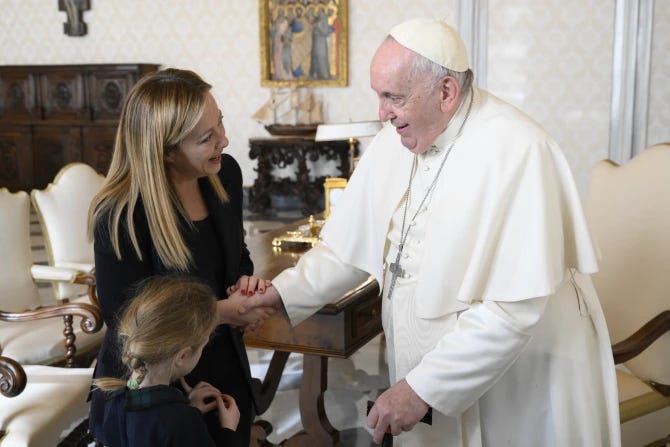The pope and the prime minister
Italian PM Giorgia Meloni has been the only non-Church official to publicly visit Pope Francis during his extended hospital stay. What kind of relationship do they have?
Pope Francis received a visit last week from Italian Prime Minister Giorgia Meloni, making her the first — and so far only — civil official to visit the pontiff publicly since he was hospitalized Feb. 14.

“I was very glad to find …
